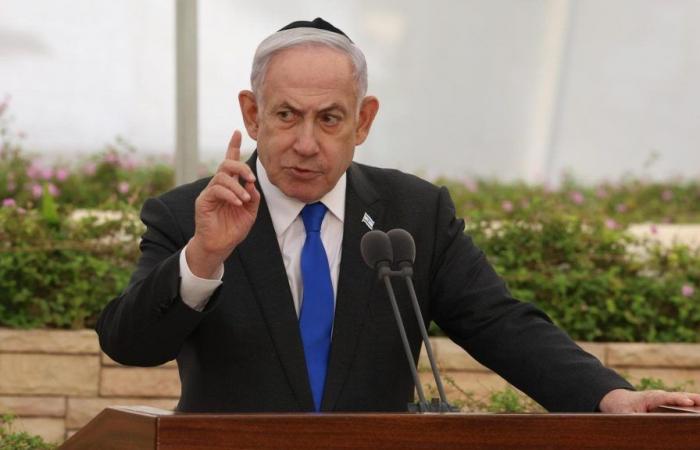
TEL AVIV – The prime minister Benjamin Netanyahu He declared that Israel is willing to temporarily suspend fighting in Gaza to obtain a partial agreement that includes the release of some hostages held by Hamas. However, she stressed that the war will not end until the terrorist group is completely destroyed.
In an interview given to the Israeli TV channel Channel 14 the Israeli prime minister said that the hot phase of the war with Hamas is coming to an end, but the conflict will continue at low intensity until the strategic objectives are achieved: dismantling the military wing of Hamas, freeing the hostages and creating a new civil administration. “I am not willing to end the war and leave Hamas standing. I’m willing to make a partial deal, it’s no secret, that would give us some of the people back. But we are obliged to continue fighting, after a pause, to complete our goal of destroying Hamas,” Netanyahu said on the program “The Patriots.”
The imminent cooling of military operations in Rafah, however, is not a step towards peace but towards the risk of a new war: it will allow Israel to move forces to the North, Netanyahu explained, where he hopes for a diplomatic solution to the crisis with Hezbollah but is preparing an armed intervention in depth in Lebanon. The objective, the prime minister explained, is to eliminate the presence of Shiite militias in the south of the country close to the border to allow the Israelis to return to the abandoned villages in the north. The conflict with Hezbollah, which reignited after 7 October due to the militias’ support for Hamas, has increased in intensity with the targeted killings of a series of senior officers of the Lebanese paramilitary group.
Speaking about the future of the Strip, Netanyahu said that Israel will maintain “military control, and we want to create a civilian administration, if possible with local Palestinians” and with the support of other countries in the region “to manage humanitarian supplies and civil affairs ”. His words on military prospects, objectives and strategy in the Strip appear to once again contradict the terms of the ceasefire proposal presented by US President Joe Biden, which included a temporary pause followed by a permanent cessation of hostilities .
However, they are the re-proposal of a line already reiterated by Netanyahu, desired by the extreme right which supports him and has never accepted the idea of ending the conflict without definitively dismantling Hamas. It is a very difficult project to implement concretely and very dangerous for the survival of the hostages and the Palestinian civilian population.
In fact, criticism of Netanyahu’s statements also immediately came from the Hostages and Missing Families Forum, which accused him of supporting a line that Hamas will never be able to accept, thus abandoning the 120 hostages still held in the Strip. Netanyahu responded by accusing Hamas of opposing the agreement.
In preparation for a possible conflict in Lebanon, the prime minister said Israel is ready to redeploy forces along the northern front “mainly for defensive purposes”. He expressed hope for a diplomatic solution with Hezbollah which will necessarily have to guarantee “physical distancing from the border, and we will have to enforce it… We are committed to returning the residents of the north to their homes”, he said. And he reiterated that Israel is ready to fight on multiple fronts if necessary.
But the prospect of an open conflict with Hezbollah greatly worries the United States, Israel’s main ally. The Chief of Staff Charles Brown explained that the US will not be able to help Israel defend itself as effectively as it did during the Iranian attack in April, and reiterated that Washington continues to advise Israel against opening a front with an intervention in southern Lebanon. The high risk of direct support from Tehran and the geographical contiguity between Lebanon and Israel – explained General Brown – would make it much more difficult for the US to support Israel this time.





